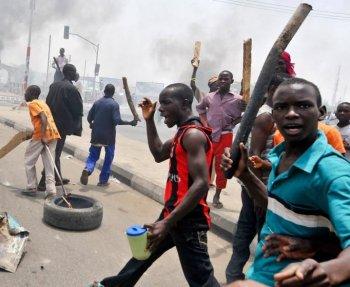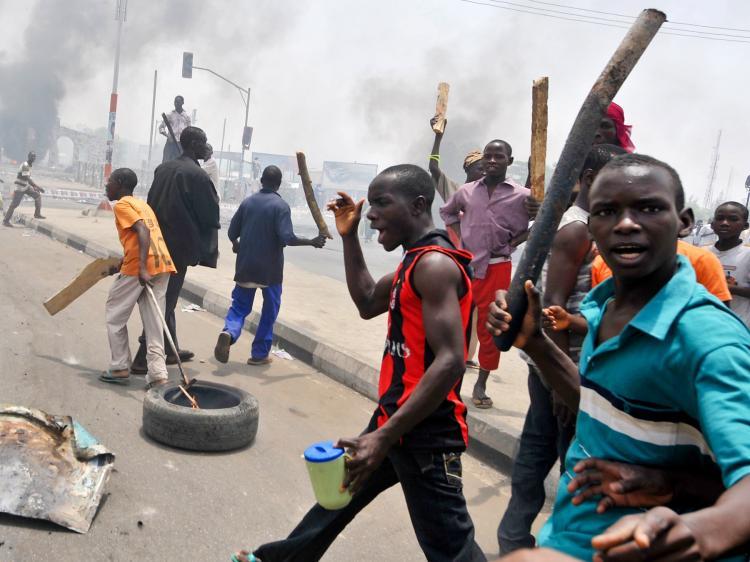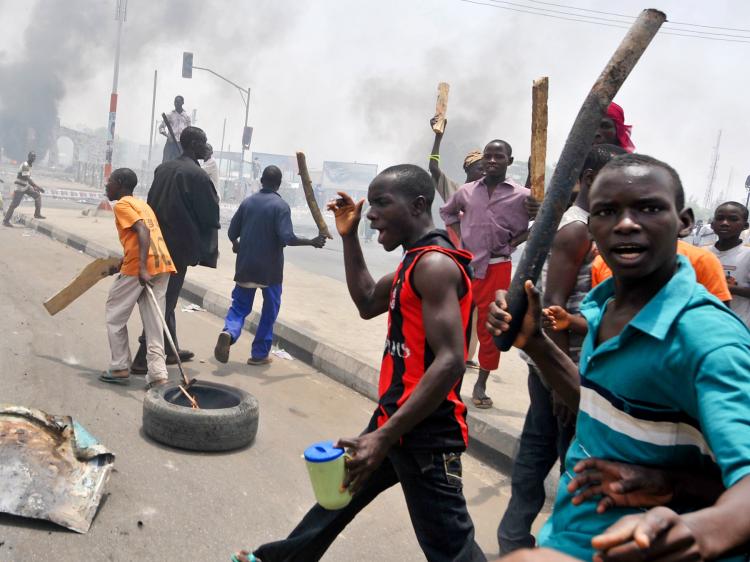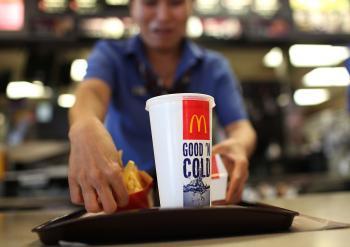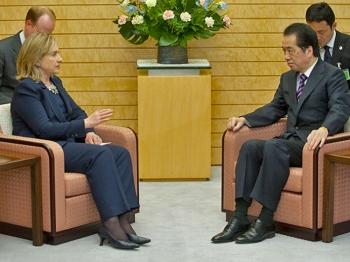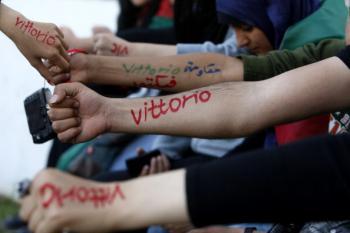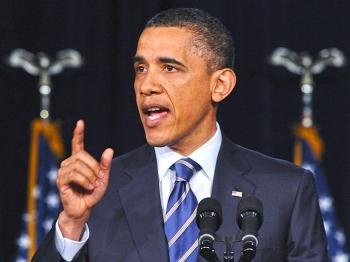Post-election violence erupted and quickly spread to several cities in Northern Nigeria on Monday following allegations that incumbent Nigerian President ‘Goodluck’ Jonathan and his ruling party rigged elections Africa’s most populous nation.
Although observers deemed the recent polls in Nigeria as one of the fairest in years, early on Monday angered youths, supporters of Muhammadu Buhari, a former military ruler, took to the streets of the largely Muslim Northern region of the country building barricades and burning properties.
Businesses and banks were reportedly shuttered down due to fears of more violence and destruction.
A riot broke out on Monday in Kaduna, a northern Nigeria city. Security forces were sent in to restore order and a 24-hour curfew was announced by Kaduna’s state governor Patrick Yakowa in a live broadcast, according to BBC. Kaduna is the home state of incumbent vice president and Jonathan’s running mate Namadi Sambo.
Riots reportedly erupted almost simultaneously at Wuse Market, Abuja’s central market, and in the Utako district of the city several bomb explosions were heard. Violence also escalated to Deidei, a satellite settlement of Abuja and to Suleija, a city in Niger state, just north of the capital, according to what eyewitness told the African Herald Express.
Amnesty International reported incidents of rioting also in Kano, Gombe, Adamawa, Bauchi and Plateau states and the Federal Capital Territory.
Although final election results in Nigeria are still pending, early results post Jonathan as the winner, with heavy support coming from the mostly Christian south.
Prior to the elections, Nigeria’s two main opposition parties—Congress for Progressive Change (CPC) and the Action Congress of Nigeria (ACN)—had attempted, but failed, to form an alliance that they hoped would be able to defeat Jonathan.
The main presidential contenders in Nigeria’s Saturday elections were Jonathan, Buhari for CPC and Nuhu Ribadu, a former anti-corruption chief, for the ACN.
Ribadu, 50, the youngest presidential candidate has strong support in the southwest, while Buhari’s support comes mostly from the north. The ruling People’s Democratic Party (PDP) however has ruled Nigeria since taking power in 1999.
Jonathan is set to win at least a quarter of the votes from the first round, but without gaining an absolute majority, there will be a run-off round. Jonathan is seen as the favorite to win overall, and his PDP is leading in results in parliamentary elections held earlier this month.
Amnesty International released a statement on Monday urging the Nigerian military not to use excessive force to quell the post-vote riots and demonstrations.
“The security forces’ response to this unrest must not lead to further human rights violations. The police and military must respect human life and use proportionate means to police demonstrations,” Tawanda Hondora, Amnesty International’s deputy director for Africa, said in statement.
Sectarian and political violence ahead of presidential and parliamentary elections in Nigeria has been common.
Although observers deemed the recent polls in Nigeria as one of the fairest in years, early on Monday angered youths, supporters of Muhammadu Buhari, a former military ruler, took to the streets of the largely Muslim Northern region of the country building barricades and burning properties.
Businesses and banks were reportedly shuttered down due to fears of more violence and destruction.
A riot broke out on Monday in Kaduna, a northern Nigeria city. Security forces were sent in to restore order and a 24-hour curfew was announced by Kaduna’s state governor Patrick Yakowa in a live broadcast, according to BBC. Kaduna is the home state of incumbent vice president and Jonathan’s running mate Namadi Sambo.
Riots reportedly erupted almost simultaneously at Wuse Market, Abuja’s central market, and in the Utako district of the city several bomb explosions were heard. Violence also escalated to Deidei, a satellite settlement of Abuja and to Suleija, a city in Niger state, just north of the capital, according to what eyewitness told the African Herald Express.
Amnesty International reported incidents of rioting also in Kano, Gombe, Adamawa, Bauchi and Plateau states and the Federal Capital Territory.
Although final election results in Nigeria are still pending, early results post Jonathan as the winner, with heavy support coming from the mostly Christian south.
Prior to the elections, Nigeria’s two main opposition parties—Congress for Progressive Change (CPC) and the Action Congress of Nigeria (ACN)—had attempted, but failed, to form an alliance that they hoped would be able to defeat Jonathan.
The main presidential contenders in Nigeria’s Saturday elections were Jonathan, Buhari for CPC and Nuhu Ribadu, a former anti-corruption chief, for the ACN.
Ribadu, 50, the youngest presidential candidate has strong support in the southwest, while Buhari’s support comes mostly from the north. The ruling People’s Democratic Party (PDP) however has ruled Nigeria since taking power in 1999.
Jonathan is set to win at least a quarter of the votes from the first round, but without gaining an absolute majority, there will be a run-off round. Jonathan is seen as the favorite to win overall, and his PDP is leading in results in parliamentary elections held earlier this month.
Amnesty International released a statement on Monday urging the Nigerian military not to use excessive force to quell the post-vote riots and demonstrations.
“The security forces’ response to this unrest must not lead to further human rights violations. The police and military must respect human life and use proportionate means to police demonstrations,” Tawanda Hondora, Amnesty International’s deputy director for Africa, said in statement.
Sectarian and political violence ahead of presidential and parliamentary elections in Nigeria has been common.
